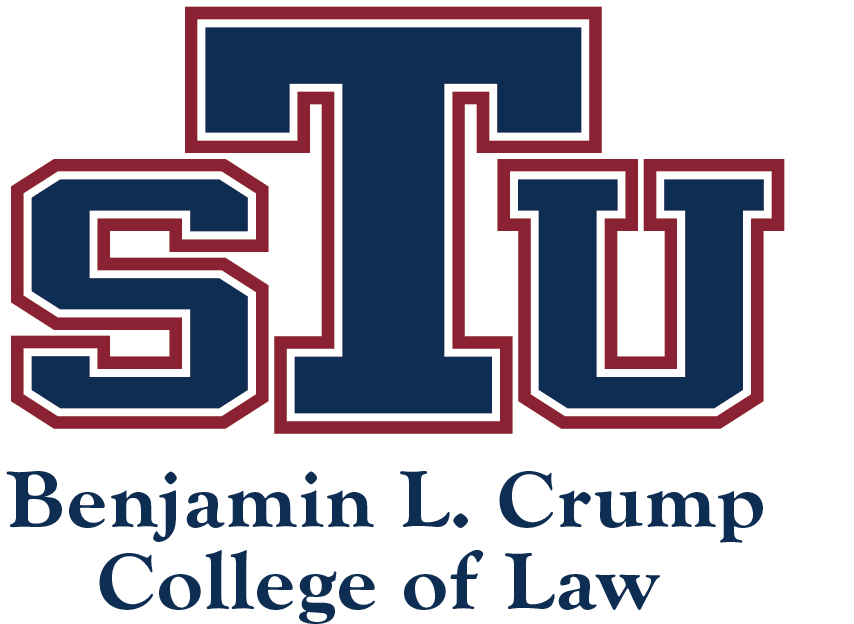J.S.D. Admission and Enrollment Information
Admissions and Application Information
Eligibility
Students must have graduated with honors from St. Thomas University’s LL.M. Program in Intercultural Human Rights, i.e. with a minimum cumulative grade point average of 3.0. In rare cases, outstanding scholars from other institutions who hold an LL.M. degree in the field may be admitted as well, conditional upon enrollment in, and completion of, certain specified courses of the LL.M. IHR program. Candidates for the J.S.D. program need to prove to the Collegel of Law’s J.S.D. Committee that they are outstanding scholars at or near the top of their class who are capable of producing a publishable thesis that adds to the knowledge in the field, and who are capable of doing so within the time frame of the J.S.D. program.
At least two terms of work must be spent in residence at the College of Law. This requirement may be satisfied by residence as an LL.M. candidate. In these cases, at least two additional years must be devoted to the preparation and revision of the dissertation. These additional years may be passed in residence or off campus, including outside of the United States. J.S.D. students admitted from other institutions have to spend at least one academic year in residence at St. Thomas University College of Law, and they have to enroll in, and pass, a minimum of twelve (12) credits up to a maximum of twenty-four (24) credits from among the required classes of the LL.M. Program in Intercultural Human Rights.
The J.S.D. degree in Intercultural Human Rights is conferred upon successful completion of a dissertation, the passing of the rigorosum, and proof of publication of the dissertation.
Admission Process
Applicants for admission to the J.S.D. Program in Intercultural Human Rights need to submit the following documents:
- Completed J.S.D. Application Form
- Academic credentials/ transcripts of all degrees, LL.M. degree and any other degrees. Official transcripts from all college/university and/or certified foreign diplomas or certificates are to be sent directly from the issuing institution to St. Thomas University College of Law, LL.M. Program in Intercultural Human Rights. All foreign diplomas and transcripts should be translated into English and certified or notarized. All foreign credentials must be evaluated by an approved agency in the U.S. We recommend World Education Services or Josef Silny & Associates.
- Writing Sample (e.g. LL.M. thesis, seminar paper)
- Doctoral Dissertation Proposal consisting of:
- Outline of the chosen topic; issues to be explored
- An articulation of the topic’s novelty
- An initial bibliography
- Methodology to be employed
- A timeframe for the stages and places of research as well as a tentative date of completion of the manuscript
- Length: at least five (5) pages
- Letter of Acceptance of Candidate and Topic from the Supervising Faculty Member
- Note: it is the applicant’s responsibility to find and contact the potential supervisor – either one from the list we have provided, or another scholar who has expertise in the field of student’s dissertation topic, and who has already earned a doctorate degree him- or herself. The supervisor’s doctorate can be a J.S.D., S.J.D., Ph.D., Dr. iur. or equivalent.
- Upon discussion with the candidate, the potential supervisor must have approved the topic and the dissertation proposal, before it can be submitted to the J.S.D. Committee.
- One Letter of Recommendation
- $100 (U.S. Dollars) Non-Refundable Application Fee
- Completed application packets should be mailed to:St. Thomas University College of Law
Graduate Program in Intercultural Human Rights
c/o J.S.D. Admission Committee
16401 NW 37th Avenue
Miami Gardens, FL, USA 33139
The Director of the Program reviews all the completed applications. All eligible applications will be submitted for decision to a four-member J.S.D. Committee formed by the Director and the Executive Director of the Graduate Program in Intercultural Human Rights and two other members of the St. Thomas University College of Law faculty who hold a J.S.D., S.J.D., or Ph.D. degree or their foreign equivalent, such as the Dr. iur.
Additional Requirement for Non-St. Thomas Applicants
In the case of non-St. Thomas applicants, the potential applicant is expected to consult with the Director of the Program, in person or telephonically, prior to submitting his/her application, in order to determine whether the program meets the applicant’s needs, whether the nature of the program fit the applicant’s profile, and whether the applicant’s academic background and experience fit the program’s requirements.
Admissions Decisions
The applicants with the most original proposals, strongest academic records and promise of achievement are admitted to the Program.
Upon the decision of the J.S.D. Committee, an admission letter signed by the Director of the Program is mailed to the admitted students. Students who are not admitted to the program receive a letter denying their admission.
Enrollment and Registration
Enrollment
A student who has been advised of his/her admission receives a Registration Form. Information regarding requirements to establish and maintain J.S.D. student status, deadlines for registration, and deadlines for pertinent payments is also included in this communication.
Students
A J.S.D. student is defined as one who is enrolled in a J.S.D. thesis course for a minimum of two (2) years, and a maximum of five (5) years. In exceptional cases, the Director of the Program can extend this period to six (6) years; for an extension beyond six years, the approval by both the Director of the Program and the Dean of the College of Law is needed.
Registration
J.S.D. students with no outstanding balance from the previous semester are automatically registered in the following semester, upon certification by the supervisor that the student has made sufficient progress toward completing the thesis.
It is the student’s responsibility each end of semester:
- to obtain the certification of progress by the supervisor
- to make sure they have cleared any and all financial obligations to St. Thomas University.
Failure to enroll in this continuing course at any time and in any semester before the completion of the program will be deemed a resignation from the J.S.D. program. Leaves of absence are not to be granted.
The J.S.D. thesis course is valued at nine (9) credits per semester (fall and spring only). This course is pass/fail. In order to receive a passing grade in this class, the thesis supervisor needs to submit a statement to the Registrar’s Office that the J.S.D. IHR student has made sufficient progress toward completion of his/her thesis. Insufficient progress will result in student’s dismissal from the program.
Termination and Withdrawal
A student intending to resign from the program must express such intent in writing before the semester starts, by submitting a letter of withdrawal to the Program Director. Failure to submit the resignation request before the semester starts does not remove the student’s financial responsibility for that semester.
Students who have failed to obtain the declaration of progress by their supervisor or who have failed to clear their financial obligations to St. Thomas University by the end of the semester are automatically excluded from registration for the subsequent semester, and their student status is terminated.
Should a student be terminated on the above grounds, the student will have to re-apply for admission to the J.S.D. program, and if admitted will be subject to all rules and policies as a first-time admitted student would.
Tuition and Fees
The application fee is $100. The program’s tuition ranges between $3,500 and $4,000 per semester, as determined by the University Administration each year, and its fees are $250 per semester. Once their thesis is completed and submitted, students are charged a submission fee of $3,000 designed to cover the costs of the two opinions on the thesis as well as the rigorosum. Students are responsible for the publication of the dissertation, as well as the costs thereof, in a format and venue approved by the J.S.D. Committee. If the student submits the final version of dissertation as approved by the supervisor after a semester has started, the regular semester charges will apply, and the submission fee of $3,000 will be charged to the student’s account in the semester immediately following the submission of the dissertation.

